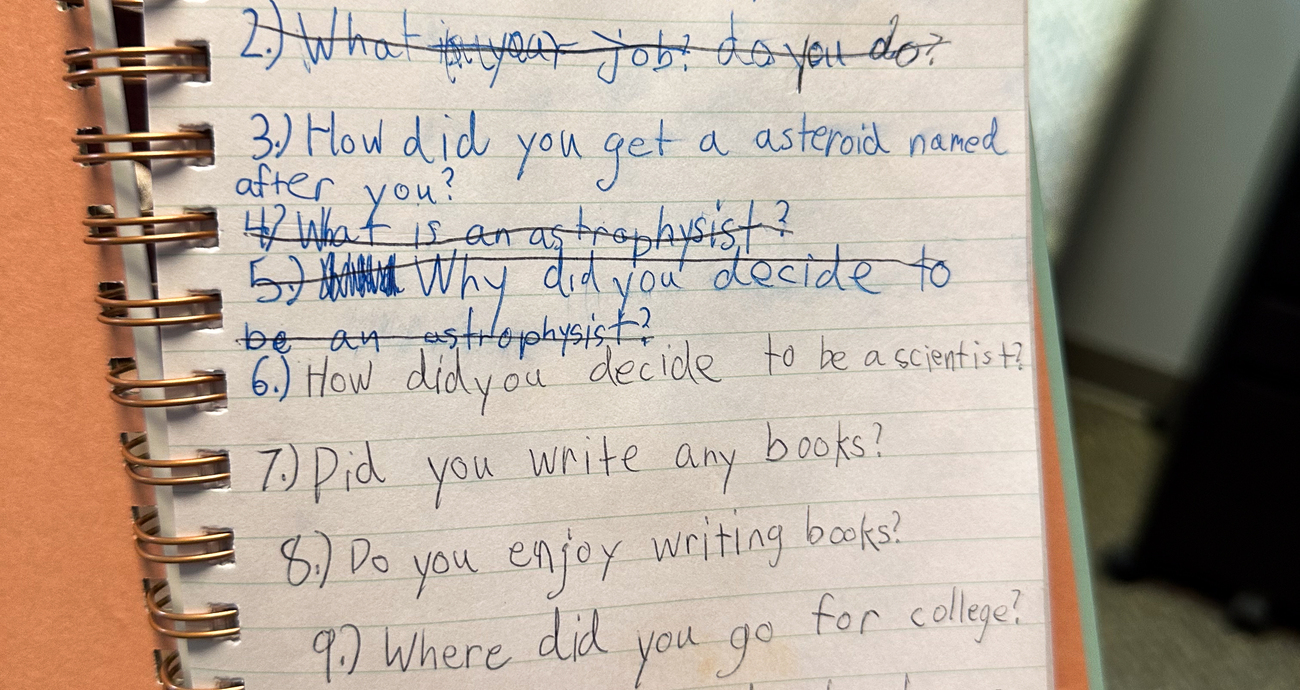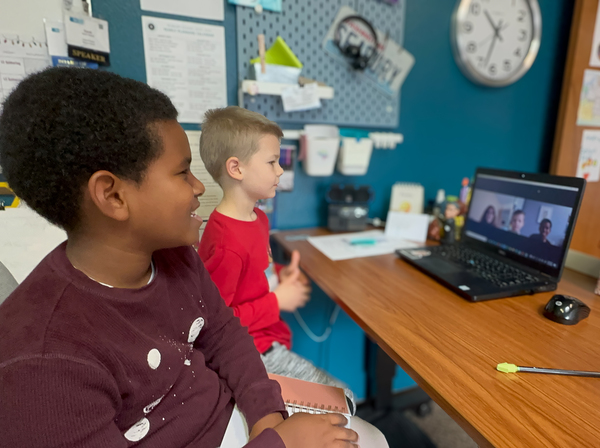
Real-life scientist talk
When children join the Seabury community, they step into an environment in which they are surrounded by a close-knit group of kids who really get them, as well as a whole team of adults who know and care for them.
Recently, our head of school heard from a second grader, whose passion is science, that he doesn't need believe he needs to practice writing because he plans to be a scientist when he grows up. She knew that wasn't true – for any field – but she decided writing advice for this kid would be most powerful coming from a real scientist. So she called Dr. Christine Hartzell, astrophysics researcher and Professor of Aerospace Engineering at the University of Maryland — and former Seabury kid!
Dr. Hartzell agreed to meet for a video conference with this second grader and a science-loving classmate to tell them about her work as an astrophysicist and all that it entails. A few days later, the two excited kids stepped into the head of school's office armed with a whole page of questions prepared for Dr. Hartzell. They were all ears as she told them about her work teaching and studying concepts like the orbits of celestial bodies, gravitational dynamics on a potato-shaped asteroid, spacecraft design, and protecting astronauts from the dust on the surface of the moon. The kids were astonished to hear that she even has a real asteroid named after her! “My asteroid was actually discovered the year I was born, which is kind of cool, and it orbits between Mars and Jupiter, so it’s one of the main belt asteroids.”
Dr. Hartzell went on to discuss some of the other supporting tasks involved with her job, which include more than a little writing. She explained that skilled writing is essential in order to ensure that research findings are reported clearly and accurately, as well as to inspire further inquiry: “You write that paper, and then other people in science — people that you might not even know, people from other universities, people in other countries, or even people in the future — they can read this paper and learn about what you did, and then they can develop new hypotheses to expand your theory.” She also noted that an integral aspect of what science researchers do actually involves writing grant proposals to secure funding for further studies. “The other part of writing that you do a lot of is to write grants to NASA to get money to do your research. ... Oftentimes, you say, ‘hey, there’s this really interesting question, there’s this piece of science I want to do,’ and there’s no one there to tell you ‘no, you can’t do it,’ but somehow you still need to make money,” she explained, “So in order to get that money, what you do is you write a proposal ... And if your proposal is good enough, then NASA will give you the money to go do your science. So, the writing is really important because you have to get the money to do what you want to do.”
The also had a chance to ask Dr. Hartzel anything they were curious about. Questions poured out about how she managed to get an asteroid named after her, where she attended college, what made her decide to become a scientist, and even her favorite element on the Periodic Table (it's silicon). When one of the kids asked her what he should do to become a scientist, she responded, “Well, you definitely need to take hard math and science courses ... and then you also need to make sure that you know how to write, and communicate. Communicating is really important, because if you just do your science and you don’t write about it or present about it to other people, no one ever knows about it. And if no one knows that you did the science, it’s as if it didn’t happen at all.”
Our future-scientist second grader has new insight as to how sharpening his writing skills can be an asset to him in his quest to become a scientist.

